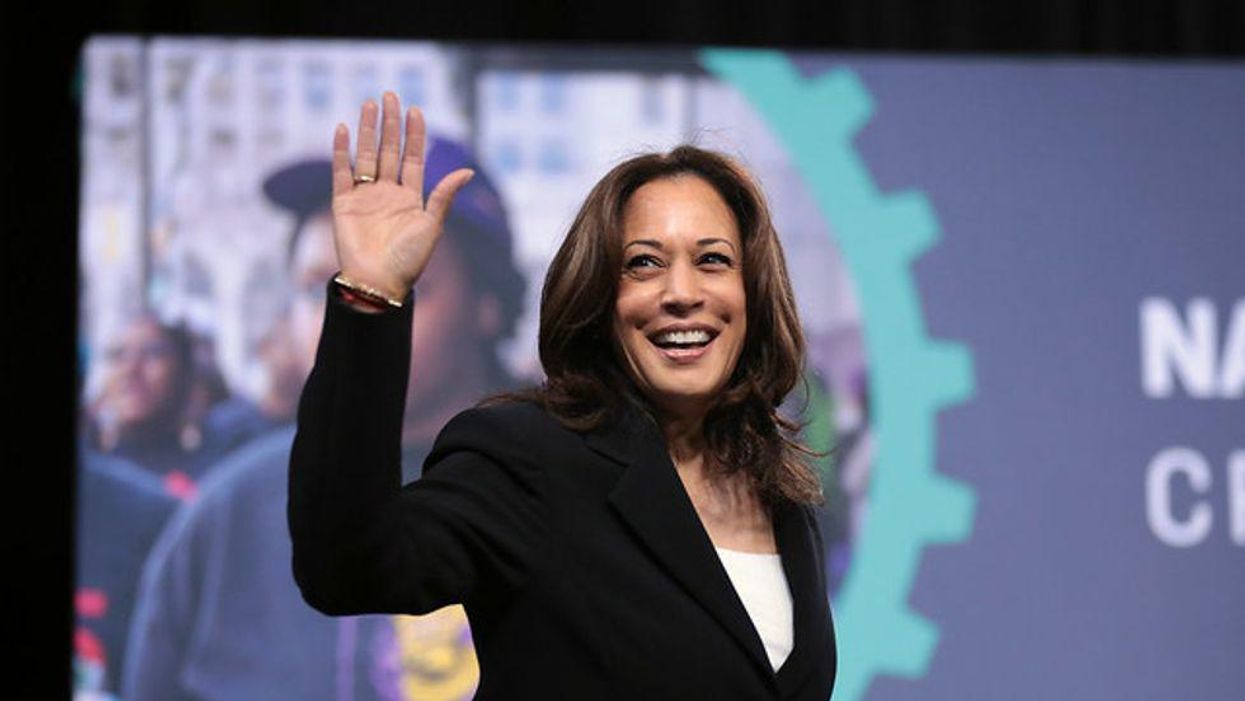As Navarro Begins Sentence, Bannon Tells Trumpists To Be Ready 'For Prison'
In recent days, MAGA media have been sending subtle (and not so subtle) messages to their supporters that they ought to be willing and prepared to go to jail on behalf of the Trump movement.
While giving a keynote address to the Patrons for American Statecraft Conference, put on by the right-wing organization American Moment, War Room host Steve Bannon told the audience, “You have to be prepared to go to prison” for “deconstructing the administrative state,” bragging, “I’ve got prison sentences all over.”
Bannon reposted the clip on Gettr, adding, “The Call to Action is Victory,” and that under former President Donald Trump “the Hunted Become the Hunters— and the Jails and Prisons Fill with all the Traitors.”
This message has since spread across the conservative media ecosystem. On March 19, former Trump trade adviser Peter Navarro reported to federal prison. Convicted of contempt of Congress, Navarro was sentenced to serve four months after refusing to comply with a subpoena from the House January 6 committee in February 2022. Before surrendering, he gave a rambling press conference during which he promoted his forthcoming book and offered reporters advanced copies.
After taking the press conference live on War Room, returned to sing Navarro’s praises. “The composure he had, the courage he has, and that courage is contagious,” Bannon said, suggesting others will follow in Navarro’s footsteps to prison, “It’s one of the things the Biden regime is afraid of.” He later added: “I love the fact he makes a pitch for the book right there. It’s pure Navarro. That’s Trumpian.”
MyPillow CEO Mike Lindell joined later to echo the sentiment: “Peter’s leading the charge with his courage. And, you guys, it’s — courage is contagious. It’s spread everywhere now.”
On March 18, Navarro appeared on Donald Trump Jr.’s podcast Triggered with Donald Trump Jr.
Trump Jr. — whose publishing company, Winning Team Publishing, is behind Navarro’s new book — praised Navarro for appearing on his podcast before reporting to prison. “I wish every conservative had your balls, but more importantly your heart,” said the former president’s eldest son, “I think everyone watching has to understand that. Because that’s honestly — that’s a lesson in patriotism, right there. It’s amazing to me. It truly is. And, man, I wish we had a billion of you.”
Across social media, Trump supporters have been posting messages of solidarity with Navarro. “The Biden admin just threw one of Trump’s senior advisors in jail today,” wrote neo-Nazi collaborator and prominent MAGA troll Jack Posobiec. “You think they won’t do the same to you and your family? This is what they have wanted all along.”
Former Trump White House speechwriter Darren Beattie, who was fired after it was revealed he spoke at a white nationalist conference, posted, “Send power to the great Peter Navarro.”
Vaccine conspiracy theorist and MAGA media regular Robert Malone said Navarro’s incarceration shows that “each of us are at risk until this spiritual war has been won.”
But Navarro is no victim. He was convicted because he knowingly and willfully defied a congressional subpoena. He was denied a delayed sentence pending appeal after the Supreme Court affirmed a lower court’s ruling that any appeal was unlikely to overturn sentencing or result in a new trial. As U.S. District Judge Amit Mehta said to Navarro during his initial sentencing in January: “You are not a victim. You are not the object of a political prosecution. These are circumstances of your own making.”
Meanwhile, many Trump supporters already know what it feels like to face jail time for the game show host president. According to analysis by The Washington Post, “Judges have ordered prison time for nearly every defendant convicted of a felony and some jail time to about half of those convicted of misdemeanors” committed in connection to the January 6 insurrection.
Reprinted with permission from Media Matters.




